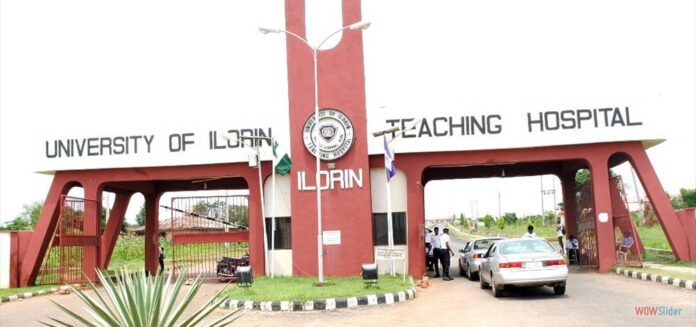The Association of Resident Doctors (ARD), University of Ilorin Teaching Hospital (ARD-UITH), has lamented that some members find it difficult to pay their children’s school fees and maintain their cars.
According to the News Agency of Nigeria (NAN), the President of the association, Dr. Monsuru Awodun, stated this on Monday in Ilorin, Kwara State, while speaking at a news conference organised as part of activities for the 42nd Annual General Meeting and Sir Ademola Aderibigbe Scientific Conference.
The theme for the 2025 scientific conference is: ‘Leveraging medical residency training as a catalyst for healthcare policy reforms in Nigeria.’
Speaking on the ongoing nationwide strike, Awodun said doctors are poorly paid in Nigeria compared to their counterparts in other African and European countries.
Awodun noted that the current strike could have been averted if the government ensured that the system worked.
“If the system is working, we will not go on strike. There are doctors who cannot pay the school fees of their children or maintain their cars. The healthcare sector is going down. We had the National Executive Council (NEC) meeting and the total, indefinite and comprehensive strike actions continue,” he said.
He described ARD members as soldiers who are bent on ensuring that the healthcare sector is improved for the benefit of Nigerians as well as doctors.
According to him, there is a severe manpower shortage at UITH, adding that many tertiary hospitals in Nigeria are grappling with an alarming shortage of resident doctors.
“Many departments are functioning with less than half of the required workforce. The growing patient load continues to increase, while the number of doctors available to attend to them keeps decreasing. The situation has stretched our members to their limits and is negatively affecting service delivery, training, and patient outcomes,” he said.
Awodun warned that many skilled resident doctors are resigning in large numbers, with even more migrating abroad in search of better working conditions.
“The rate at which our members are leaving is unprecedented and should be a source of national concern,” he said.
He listed poor remuneration, irregularities in salaries of newly employed members, and low hazard allowance as some of the critical areas the government needs to address.
Awodun also emphasised the recent downgrading of membership certificates, which he said undermines years of rigorous postgraduate training.
He noted that doctors face severe fatigue and burnout, which increases the risk of medical errors and deterioration in their physical and mental well-being.
He, therefore, called for the implementation of safe and reasonable call-hour policies that protect both doctors and patients.
Awodun, however, noted that despite the challenges, ARD-UITH had made significant strides, including mobilising over N70 million to complete the construction of 11 self-contained apartments designated for members and medical students.
“We advocated for and achieved the employment of 48 new resident doctors by the hospital management to reduce workload and curb burnout among our members,” he said.
The ARD-UITH president also explained that the association had organised the maiden edition of its entrepreneurship seminar.
He said this is aimed at equipping members with practical knowledge and skills for attaining financial stability, among others.
Similarly, he added that the doctors provided free medical care and surgical outreach programmes to over 700 beneficiaries at Owu-Isin in Isin Local Government and at Ajase-Ipo in Irepodun LGA.

